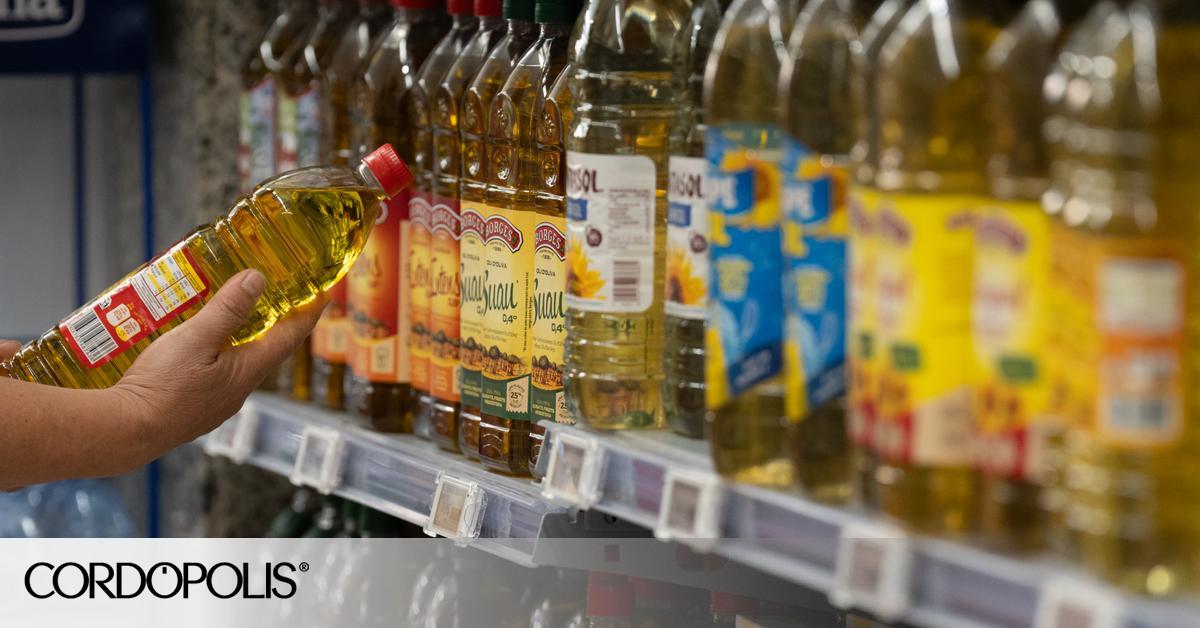
The generous rains of Easter brought optimism back to the olive oil sector and also to consumers. In January, the kilo of extra virgin olive oil at source exceeded nine euros, a record price never seen before, which was transferred to supermarkets. The rains eased the pessimism. The south of the Iberian Peninsula was enduring a long drought and the olive oil sector had two consecutive very low campaigns: half of a normal year had taken place. The forecasts, then, pointed to the fact that the next campaign, which will start in October, would be normal again since, therefore, prices would fall.
But since Easter, there has hardly been any rain, especially in the provinces of Córdoba and Jaén, the world’s largest producers of olive oil. And this is something that is worrying the sector a lot. “The olive tree is already suffering from the water shortage because, although irrigated olive trees are holding up better, the dry land ones, which are the majority, are having a very hard time without water since spring,” said the president of Asaja in Córdoba, Fernando Adell.

“The olive trees are at a very critical moment” and, with each passing day, the harvest expectations are reduced, “so we hope it rains soon because, otherwise, in two weeks the situation would be more alarming and the olive trees would start to drop olives.” mummified due to lack of water, which would reduce the future harvest,” he explains.
The olive tree is one of the most resistant trees in the world, capable of withstanding long periods of drought without dying. To do this, it uses the olives as a water reserve. If it doesn’t rain, the olive tree ends up drinking its own olives, crushing them and leaving them practically in the pit. The little oil that these olives produce is usually of extraordinary quality, but the production, for obvious reasons, is very low.
In addition to the lack of rain, there is the situation in the oil mills, where there are hardly any reserves left. The sector has experienced two very poor campaigns where sales have continued despite high prices. This has meant that almost all the available oil has been bottled and sold. At this point, Italy has technically run out of olive oil and its marketers are importing it from Spain. This is causing more oil to be sold on the Peninsula than expected and reserves to also fall very quickly.

A market in tension
Given the data from the Food Information and Control Agency (AICA), the link for this olive oil campaign will be the lowest in the historical series in Spain, which, together with the lack of water at this time, “could trigger significant tensions in the market,” reflects the president of Asaja in Córdoba.
According to AICA data, in August there was an output of approximately 70,000 tonnes, with a supply of approximately 270,000 tonnes, “which means that there will be a link of around 170,000 if September behaves like the average of the previous 11 months”. That is, October would start with oil for two and a half months.
With these figures, Spain will be able to meet its commitments, since the campaign starts in October and will become widespread in November. The arrival of new olive oil will fill the warehouses again, although less than expected.

If the campaign is ultimately shorter than expected due to a lack of rain, prices are unlikely to fall. If, in addition, Italy does not have olive oil and needs to import it from Spain, it is likely that the desired price drop will be postponed again.
According to data from Infaoliva, updated on September 12, the cost at source of a kilo of extra virgin olive oil is 7.16 euros. Virgin olive oil is sold at 6.95 euros and lampante olive oil at practically 6.80 euros per kilo. Little by little, the sector is recovering the prices of the beginning of summer, although it is still far from those reached in January, when more than nine euros per kilo were paid, on average, for extra virgin olive oil. The sector managed to close transactions at over ten euros per kilo, a value never seen before and unthinkable just a couple of years ago.
Source: cordopolis.eldiario.es

